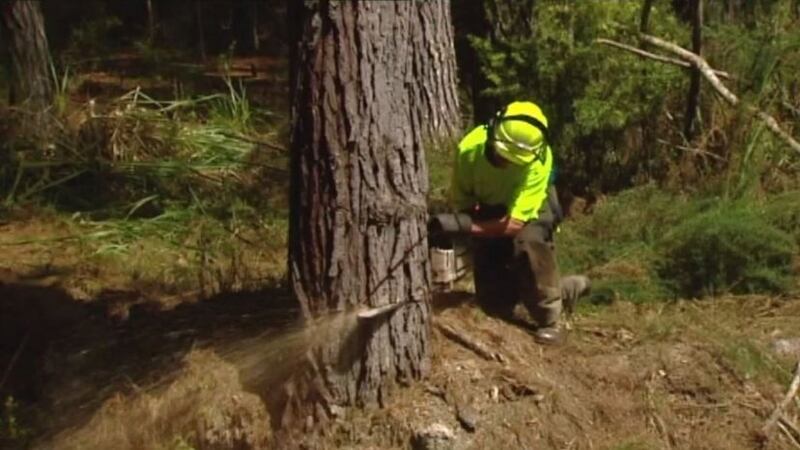Photo / File
Forestry minister Peeni Henare has announced a government plan to co-invest in onshore wood processing capacity - which has potential positive flow-on effects for Māori.
The relevance for Māori - as highlighted by Crown research institute Scion - is that Māori own 48 per cent of commercially planted forest land in Aotearoa and have signalled a desire to participate more actively with forest growing and wood processing to achieve greater economic returns and social benefits.
Māori workers also make up about 34 per cent of the forestry workforce.
Speaking at the Wood Processers and Manufacturers Association conference in Rotorua on Thursday, Henare said a $57 million fund will be established to partner with wood processors to co-invest in capacity to create products like sawn structural timber and engineered wood.
“We want to process more logs onshore, help move our forestry sector from volume to value, lift our economic performance and resilience and create high-wage jobs in our regions,” Henare said in a statement.
“The forestry and wood processing sector is central to many of our regional economies and it is past time we capitalised on the opportunities available.
“Over the last two decades, New Zealand’s overall wood processing capacity has remained relatively stable while log volumes available to be processed have doubled."
Henare said the country is "missing out on the potential benefits" that processing wood in Aotearoa offers.
“These investments will deliver better outcomes for workers, whānau, communities and regions to support a more productive and sustainable economy.
"Current projections will see hundreds of jobs generated from the additional capacity created by the fund.”
Henare said the initiative is consistent with the country's climate change goals.
“By producing more high value products onshore, the sector can support New Zealand’s goals and commitments to decarbonise the economy.
“Wood processing produces residues that can be turned into a range of biofuels to support decarbonisation which contributes to reducing emissions."

